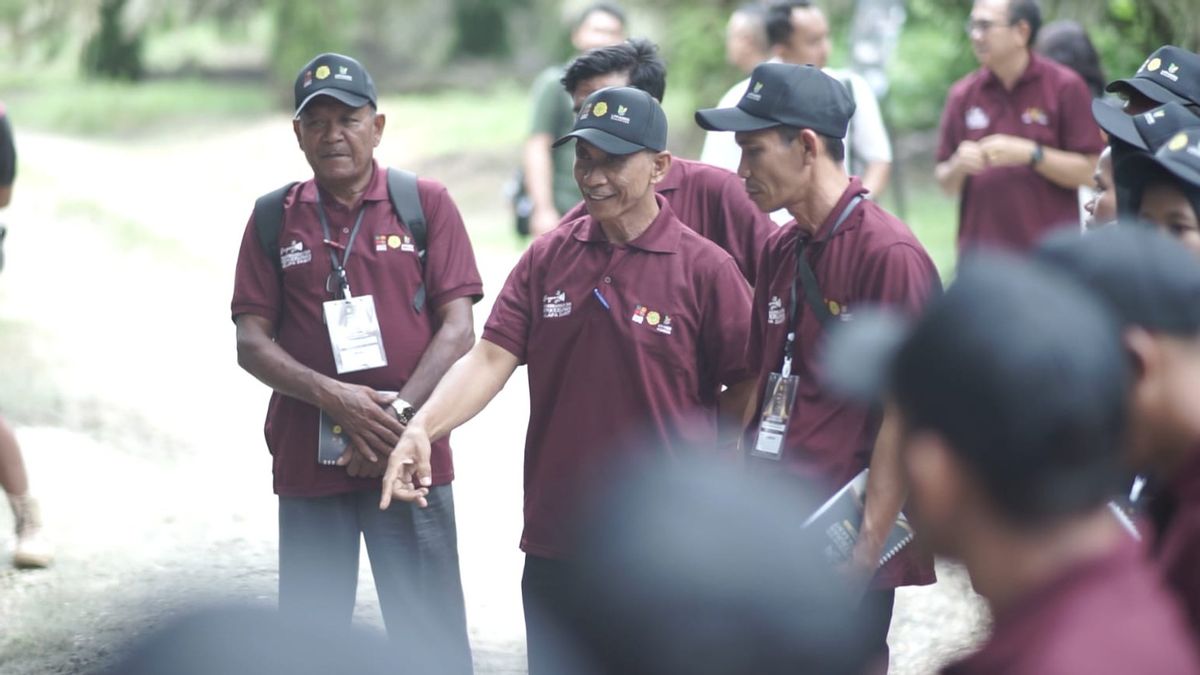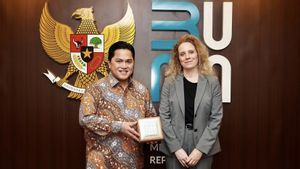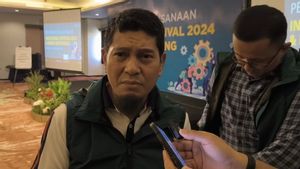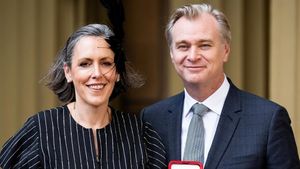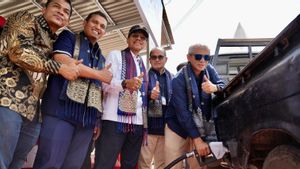JAKARTA - The Palm Oil Plantation Fund Management Agency (BPDPKS) has again held a Palm Oil Plantation Human Resources Development Program.
Activities that are routinely carried out every year target various parties involved in the self-help oil palm plantation business, such as plantations, cooperative management (KUD) to regional assistants.
The participants who came from various oil palm producing areas attended training through invitations based on Technical Recommendation Data (rekomtek).
The recommendation containing this list of participants was submitted by the plantation offices of each region issued by the Directorate General of Plantations of the Ministry of Agriculture (Kementan).
Head of the Service Program Division of the Palm Oil Plantation Fund Management Agency, Arfie Thahar, said that this training aims to improve skills and competence from planters to carry out Good Agricultural Practices.
"The HR development program is divided into two, training and scholarships. The training itself aims to improve skills and competencies from planters to carry out Good Agricultural Practices," he said, Friday, September 6.
Arfie explained that the funding for this HR development program has been running since 2016.
As of 2024, more than 18,000 planters have received training and more than 6,000 children have received scholarships.
It is known that throughout 2021-2024, funding for this training and scholarship will increase by 50 percent every year.
"With this increased funding, it is hoped that more planters will be able to benefit from this program. This program is our step to prepare quality human resources who are able to face business challenges," he said.
As for this year, BPDPKS issued funds to conduct training for 6,437 participants and scholarships for 3,000 recipients.
Training participants are divided into various training classes consisting of 11 types of training.
Starting from technical training such as cultivation of oil palm plants or management of plantation facilities and infrastructure to business development such as market information and promotion or financial management & administration.
For the implementation of training, BPDPKS collaborates with 15 training and development service providers who carry out training in the April-September 2024 period.
LPP Agro Nusantara is one of 15 training providers in collaboration with BPDPKS.
They organized 43 training classes for 1,339 participants from 7 palm oil-producing provinces in Indonesia. This amount is equivalent to 21 percent of the total data of the training participants' recommendations.
"The contribution of Agro Nusantara LPP to this program continues to increase every year. Last year, BPDPKS entrusted 876 participants and in 2024 it increased to 1,339 participants," said SEVP Operation LPP Agro Nusantara Pugar Indriawan.
Pugar said, according to data, the implementation of LPP Agro Nusantara training continues to increase every year.
In addition to the number of participants, an increase can also be seen from the number of classes and locations for the implementation of training.
In 2023, 28 classes will run in 4 provinces. Meanwhile, this year the training will be held in 7 provinces.
With the most classes in Riau Province, there are 23 current classes.
"In addition to technical knowledge, business development must be a new mindset for planters. Businesses that are well managed and scaled up must of course start immediately," he said.
According to him, this is certainly a common goal in the landscape of the palm oil business in Indonesia. The role of self-help plantations must increase in terms of quantity and quality.
"Not only are they able to produce better results, but also have competitiveness and are able to face business challenges," he added.
SEE ALSO:
With experience in the Plantation sector since 1950, LPP Agro Nusantara has contributed to developing the Plantation Business in Indonesia.
Through this government strategic program run by BPDPKS, LPP Agro Nusantara hopes that more and more plantations will have access to good plantation practices that improve the quality of Indonesian plantations.
The English, Chinese, Japanese, Arabic, and French versions are automatically generated by the AI. So there may still be inaccuracies in translating, please always see Indonesian as our main language. (system supported by DigitalSiber.id)
